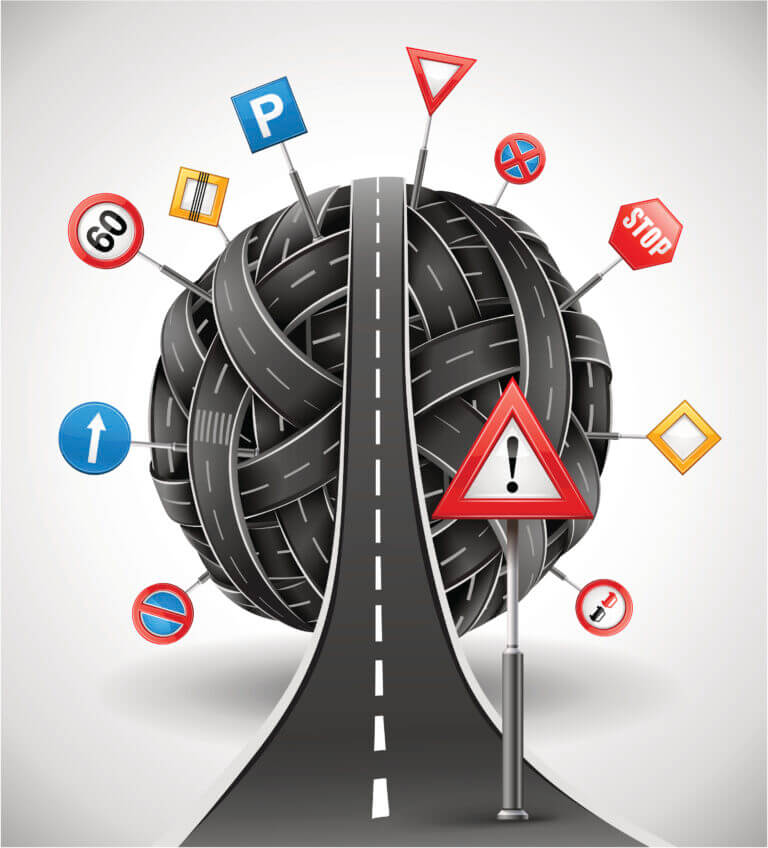In today’s technologically driven world, vehicles have become increasingly reliant on electronic signals for navigation, communication, and security. However, this dependence has also made them vulnerable to car jammers, devices that can disrupt these signals, potentially causing significant inconvenience and even danger.
Understanding Vehicle Jammers and Their Impact
Vehicle jammers, also known as signal jammers or car jammers, are devices that emit radio waves designed to block or interfere with specific frequencies used by electronic devices in vehicles. These jammers can target various signals, including GPS, GSM, Bluetooth, and Wi-Fi, disrupting functions such as navigation, phone calls, and internet connectivity.
The use of vehicle jammers is illegal in most countries, including South Africa, as they pose a serious threat to safety and security. Jamming GPS signals can disorient drivers, leading to accidents or wrong turns. Interfering with GSM signals can prevent drivers from making emergency calls or accessing roadside assistance. Disrupting Bluetooth and Wi-Fi connectivity can hinder hands-free communication and limit access to essential information.
Types of Vehicle Jammers and Their Applications
Vehicle jammers come in various forms, each designed for specific purposes. Portable jammers are small, handheld devices that can be easily concealed and used to target individual vehicles. Fixed jammers are larger, more powerful devices often installed in buildings or vehicles to disrupt signals over a wider area.
Criminals often use vehicle jammers to facilitate carjackings or thefts by disabling remote keyless entry systems or immobilizers. Jammers can also be employed to disrupt police or military communications, hindering their ability to respond to emergencies or coordinate operations with car jamming instances.
Protecting Yourself Against Vehicle and Car Jamming
While car jamming poses a significant threat, there are measures that motorists can take to protect themselves:
Be aware of your surroundings: Stay alert and aware of suspicious activity, especially when parking or driving in areas with high crime rates.
Install anti-jamming devices: Consider installing anti-jamming devices that can detect and block interference from a signal jammer .
Utilize alternative communication methods: In case of signal disruption, rely on alternative communication methods, such as walkie-talkies or satellite phones.
Report suspicious activity: If you suspect the presence of car jamming, immediately report it to the authorities.
Detecting and Disabling Vehicle Jammers
Detecting vehicle jammers can be challenging, as their presence may not always be obvious. However, there are signs that can indicate the presence of a jammer:
GPS malfunction: Sudden GPS signal loss or erratic navigation could indicate interference from a jammer.
Cellular disruption: Noticing dropped calls, poor signal quality, or inability to access mobile data could be signs of GSM jamming.
Bluetooth interference: Difficulty connecting to Bluetooth devices or experiencing frequent disconnections could indicate Bluetooth jamming.
Wi-Fi connectivity issues: Reduced Wi-Fi signal strength or inability to connect to Wi-Fi networks could be signs of Wi-Fi jamming.
If you suspect the presence of a vehicle jammer, follow these steps:
Move away from the suspected source: Drive away from the area where you suspect the jammer is operating.
Restart your vehicle’s electronic systems: Sometimes, restarting the vehicle’s electronics can clear any temporary interference.
Check for anti-jamming devices: If your vehicle is equipped with anti-jamming devices, check if they are functioning correctly.
Seek professional assistance: If the issue persists, consult a qualified technician to diagnose and address the problem.
key jammers pose a serious threat to motorists and public safety. By understanding their modus operandi, potential impacts, and protective measures, individuals can minimize the risks and safeguard their vehicles and personal safety.
Navigating the Maze of Vehicle Jammers: A Comprehensive Guide
In today’s technologically driven world, vehicles have become increasingly reliant on electronic signals for navigation, communication, and security. However, this dependence has also made them vulnerable to car jammers, devices that can disrupt these signals, potentially causing significant inconvenience and even danger that is why vehicle tracking is a necessity to have.
Understanding Vehicle Jammers and Their Impact
Vehicle jammers, also known as signal jammers or car jammers, are devices that emit radio waves designed to block or interfere with specific frequencies used by electronic devices in vehicles. These jammers can target various signals, including GPS, GSM, Bluetooth, and Wi-Fi, disrupting functions such as navigation, phone calls, and internet connectivity.
The use of vehicle jammers is illegal in most countries, including South Africa, as they pose a serious threat to safety and security. Jamming GPS signals can disorient drivers, leading to accidents or wrong turns. Interfering with GSM signals can prevent drivers from making emergency calls or accessing roadside assistance. Disrupting Bluetooth and Wi-Fi connectivity can hinder hands-free communication and limit access to essential information.
Types of Vehicle Jammers and Their Applications
Vehicle jammers come in various forms, each designed for specific purposes. Portable jammers are small, handheld devices that can be easily concealed and used to target individual vehicles. Fixed jammers are larger, more powerful devices often installed in buildings or vehicles to disrupt signals over a wider area.
Criminals often use vehicle jammers to facilitate carjackings or thefts by disabling remote keyless entry systems or immobilizers. Jammers can also be employed to disrupt police or military communications, hindering their ability to respond to emergencies or coordinate operations.
Protecting Yourself Against Vehicle Signal Jamming
While vehicle jammers pose a significant threat, there are measures that motorists can take to protect themselves:
Be aware of your surroundings: Stay alert and aware of suspicious activity, especially when parking or driving in areas with high crime rates.
Install anti-jamming devices: Consider installing anti-jamming devices that can detect and block interference from jammers.
Utilize alternative communication methods: In case of signal disruption, rely on alternative communication methods, such as walkie-talkies or satellite phones.
Report suspicious activity: If you suspect the presence of a vehicle jammer, immediately report it to the authorities.
Detecting and Disabling Vehicle Jammers
Detecting vehicle jammers can be challenging, as their presence may not always be obvious. However, there are signs that can indicate the presence of a jammer:
GPS malfunction: Sudden GPS signal loss or erratic navigation could indicate interference from a jammer.
Cellular disruption: Noticing dropped calls, poor signal quality, or inability to access mobile data could be signs of GSM jamming.
Bluetooth interference: Difficulty connecting to Bluetooth devices or experiencing frequent disconnections could indicate Bluetooth jamming.
Wi-Fi connectivity issues: Reduced Wi-Fi signal strength or inability to connect to Wi-Fi networks could be signs of Wi-Fi jamming.
If you suspect the presence of a vehicle jammer, follow these steps:
Move away from the suspected source: Drive away from the area where you suspect the jammer is operating.
Restart your vehicle’s electronic systems: Sometimes, restarting the vehicle’s electronics can clear any temporary interference.
Check for anti-jamming devices: If your vehicle is equipped with anti-jamming devices, check if they are functioning correctly.
Seek professional assistance: If the issue persists, consult a qualified technician to diagnose and address the problem.
Vehicle jammers pose a serious threat to motorists and public safety. By understanding their modus operandi, potential impacts, and protective measures, individuals can minimize the risks and safeguard their vehicles and personal safety with tracking devices .



